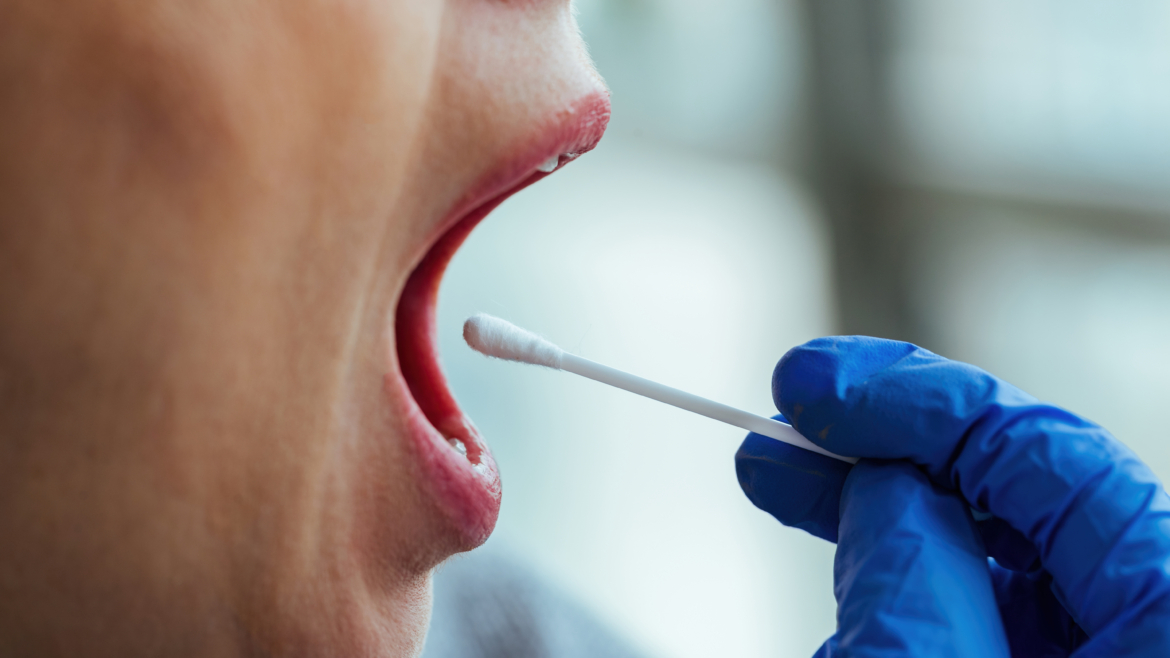Dott. Giuseppe Di Maio
Saliva is a fundamental fluid for maintaining oral health. Between 1 and 1.5 liters are produced every day, with greater secretion in the afternoon and a significant reduction during the night.
Its protective function largely depends on the salivary pH, which must remain as neutral as possible (between 6.5 and 7.5). Persistent alterations of this value can favor the onset of tooth decay, gum disease and bad breath.
What is salivary pH and why is it important
The pH of saliva measures the acidity or alkalinity of the oral cavity. A neutral saliva:
- Protects tooth enamel
- Counteracts the proliferation of harmful bacteria
- Promotes correct chewing and digestion
- Prevents bad breath
After meals, the pH may temporarily drop due to acidic or sugary foods. However, healthy saliva is able to self-regulate, returning the pH value to normal within 1-2 hours.
When the pH remains too acidic for long periods, the risk of enamel erosion and cavity formation increases. However, if it becomes too basic, it facilitates the formation of mineralized plaque (tartar), which is harmful to the gums.
When to do the salivary pH test
The salivary pH test is a simple but useful test for monitoring the chemical balance of the oral cavity. It is performed using litmus paper, which changes color in contact with saliva, indicating the pH value.
It can be indicated in the presence of:
- Frequent cavities
- Recurring gum irritations
- Persistent oral dryness
- Unexplained bad breath
Asking your dentist to perform the test can help you identify imbalances early and plan targeted interventions.
Excessive or insufficient salivation: what it means?
Altered salivary production is often a symptom that should not be underestimated:
Excessive salivation (hypersalivation)
It can be linked to:
- Neurological disorders
- Oral infections
- Side effects of drugs
In these cases it is advisable to contact a doctor for a thorough evaluation.
Reduced salivation (xerostomia)
It can cause:
- Discomfort when speaking or swallowing
- Bad breath
- Higher incidence of tooth decay and gum infections
Useful tips:
- Drink lots of water
- Avoid alcohol and caffeine
- Chew sugarless gum
- Use artificial saliva spray or gel in more serious cases, as indicated by the dentist
Be careful when choosing toothpaste
Toothpaste can also affect salivary pH balance. Many commercial products contain:
- SLS (sodium lauryl sulfate): foaming agent that can irritate mucous membranes
- Essential oils in high concentrations: can alter the beneficial bacterial flora
To maintain the natural balance of the oral cavity it is preferable:
- Use a delicate toothpaste without aggressive substances
- Choose products formulated for sensitive mouths
- Consult your dentist for guidance on specific products
Salivary pH is a key indicator of oral health. Maintaining correct values helps prevent disorders such as tooth decay, gingivitis and bad breath. Periodic pH control, correct oral hygiene and the choice of delicate products are essential to preserve the balance of the oral flora and guarantee a healthy mouth over time.
For further information or to request a salivary pH test, contact our office.

